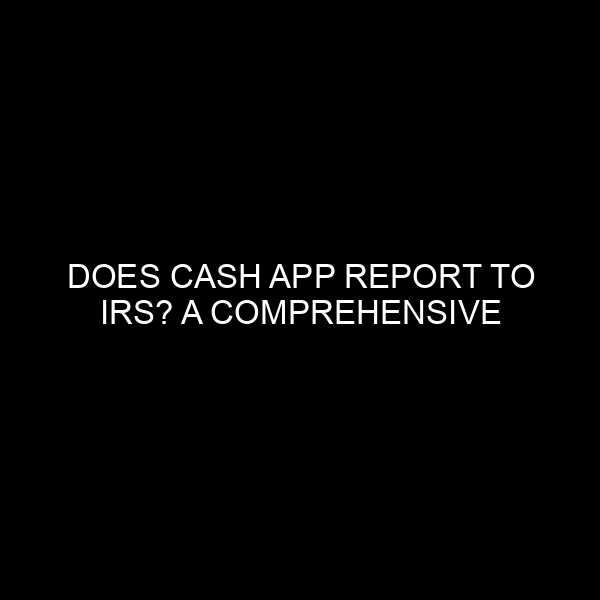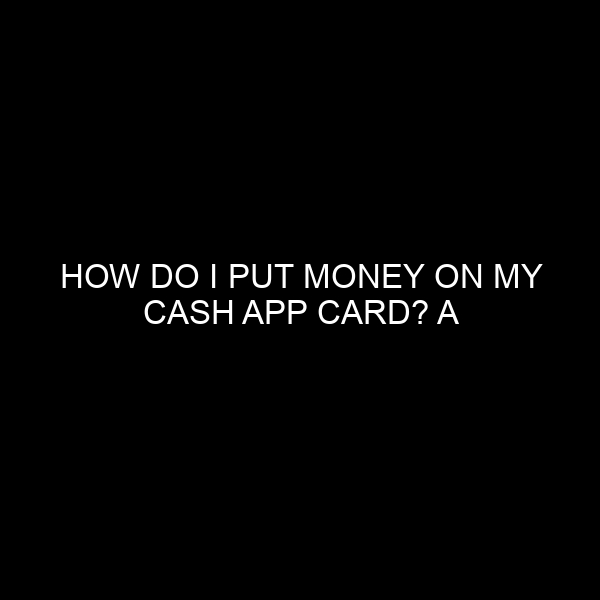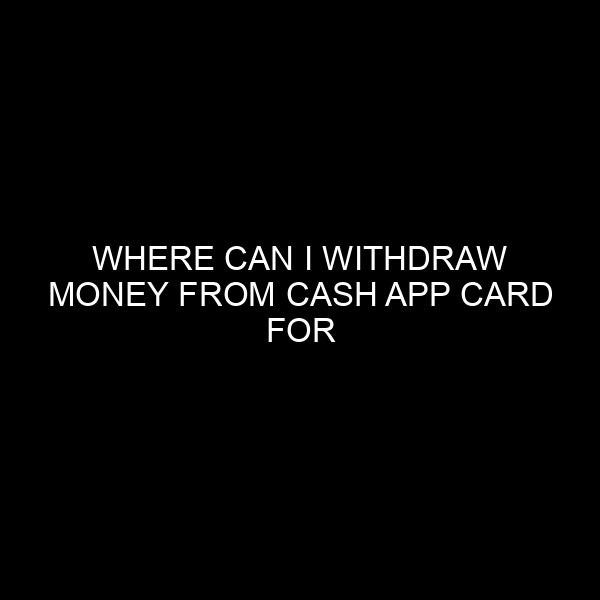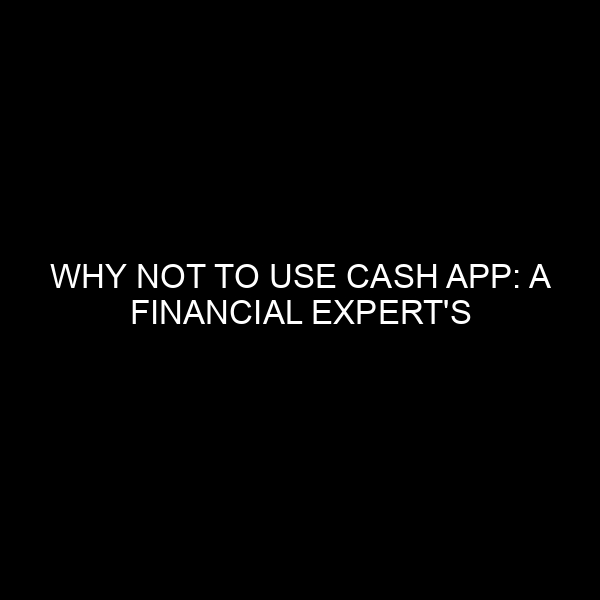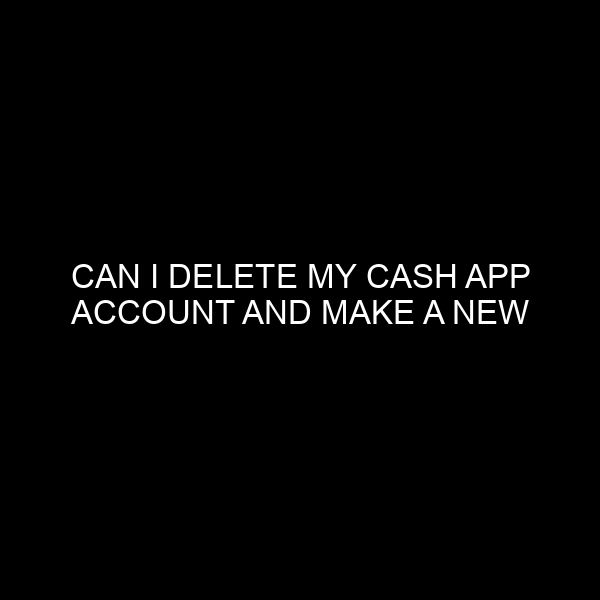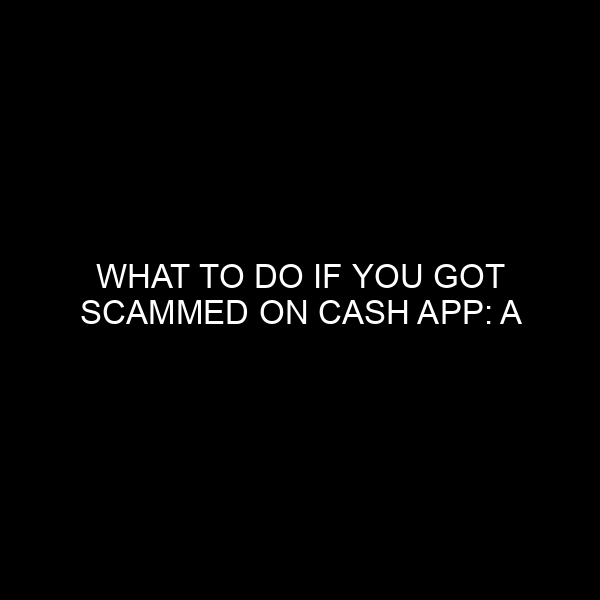Does Cash App Report to IRS? A Comprehensive Analysis
Cash App, one of the leading peer-to-peer payment platforms, has seen exponential growth over recent years. As the transition from traditional banking to digital finance accelerates, an increasing number of people are using platforms like Cash App for transactions. But with the convenience of digital transactions comes a pertinent question – Does Cash App report to the Internal Revenue Service (IRS)?
As someone with a background in the financial market and banking industry, I understand the nuances and implications of financial regulations. In this article, we’ll delve deep into the relationship between Cash App and IRS, exploring how transactions are reported, the implications for users, and what you should know to stay compliant.
Understanding the Reporting Mechanism
1. Cash App for Business Transactions
If you’re using Cash App for business transactions or receive payments for goods and services, the company has clear protocols in place. As of my last update in 2021, Square Inc., the parent company of Cash App, is obliged to issue a 1099-K form for users who receive over $20,000 and have more than 200 receiving transactions in a calendar year. This form is sent to both the IRS and the user.
2. Personal Transactions
For those using Cash App purely for personal reasons, like sending money to a friend or family member, there isn’t a mandatory reporting to the IRS for amounts under the threshold mentioned above.
Why is Reporting Necessary?
Understanding why such reporting mechanisms exist can shed light on the significance of these protocols. The key reasons include:
1. Combatting Money Laundering
Financial regulators globally have been tightening measures to combat money laundering. Reporting substantial transactions ensures a check on suspicious activities.
2. Ensuring Tax Compliance
The IRS wants to ensure that all individuals and businesses report their income accurately. By receiving transaction reports from platforms like Cash App, they can cross-check the income declarations made by individuals.
Implications for Users
1. Knowing the Tax Liability
It’s crucial for users to understand that any income, including that received through Cash App, can be taxable. Whether it’s a business transaction, a freelance job, or selling goods, the income might be subject to federal and state taxes.
2. Reporting Even Without a 1099-K
Just because you haven’t received a 1099-K form doesn’t mean you’re exempt from reporting the income. It’s the user’s responsibility to report any taxable income to the IRS.
3. Penalties for Non-compliance
Failure to report income or providing incorrect information can result in penalties. The IRS can charge interest on unpaid taxes, and in severe cases, legal action might ensue.
Best Practices for Cash App Users
To stay compliant and avoid any potential pitfalls, here are some best practices:
- Keep Records: Maintain a detailed record of all your transactions. It’s not just beneficial for tax purposes but also helps in budgeting and financial planning.
- Distinguish Between Personal and Business: If you’re using Cash App for both personal and business transactions, consider having separate accounts. This differentiation simplifies the process during tax time.
- Consult a Tax Professional: If you’re unsure about your tax obligations, consult with a tax professional or CPA. They can guide you based on your specific situation.
Conclusion
While the convenience and simplicity of platforms like Cash App have revolutionized the way we transact, it comes with its set of responsibilities. The relationship between Cash App and the IRS primarily centers on ensuring transparency and compliance with tax obligations.
As the financial landscape continues to evolve, staying informed about regulations and best practices is more crucial than ever. Remember, the goal isn’t just about avoiding penalties; it’s about fostering a transparent financial ecosystem that benefits all stakeholders.
